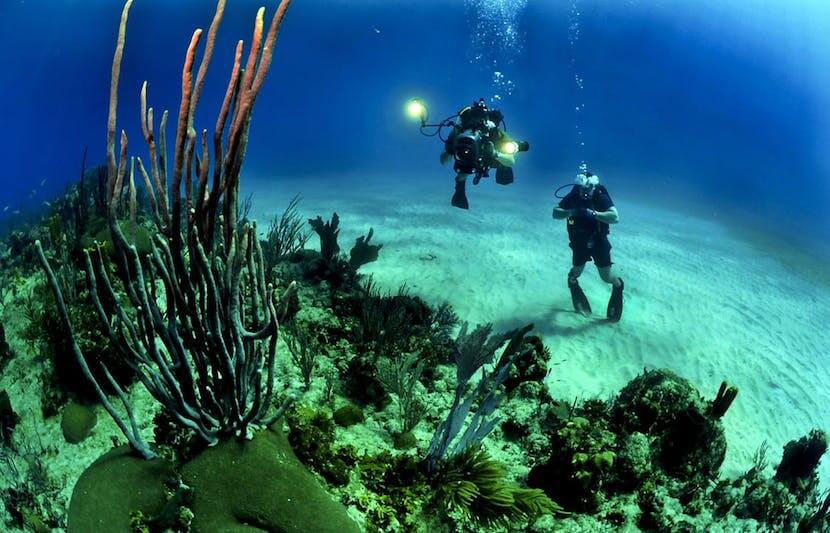Finally, lawmakers are listening to scientists. A University of Central Florida study recently helped bring Hawaiian legislators to the table to ban an ingredient in sunscreen that can kill coral reefs.
Known as the underwater jewels, coral reefs house one of the most diverse ecosystems on the planet.
“Coral reefs truly are spectacular and they are very important economically, too,” said John Fauth, an associate professor of biology at the University of Central Florida and co-author of the study. “In addition to supporting tourism, reefs protect coastlines from damaging waves and support commercial and recreational fisheries.”
Need for protection
Over 500 million people around the world depend on coral reefs for food, income and more, according to the National Oceanic and Atmospheric Administration (NOAA). In addition, coral reefs provide shelters and essential nutrients to a quarter of all fish species in the world and prevent $94 million in flood damages every year.
Researchers estimate the global economic value of coral reefs to be around $9.9 trillion.
Despite all the irreplaceable benefits of coral reefs, we have already lost half of the world’s coral reefs in just the last 30 years and expect to lose more than 90 percent by 2050.
To protect one of the world’s richest ecosystems, in 2015, a team of international researchers that includes Fauth found that an ingredient in sunscreen, called oxybenzone, kills coral reefs and disrupts coral reproduction.
Recently, the team’s findings are waking up legislators around the world to action.
The study
In 2015, the researchers found high concentrations of oxybenzone in the waters around the most visited reefs in Hawaii and the Caribbean.
Oxybenzone not only kills corals by taking away algae, a source of nutrition, but also deforms coral larvae, which are baby corals, by trapping them in their own skeleton, making them unable to float with currents and disperse.
Other studies show that oxybenzone not only kills coral reefs, but also causes DNA damage and alters the hormone system in adults, causing low birthweight in girls and skin rashes.
“We have lost at least 80 percent of the coral reefs in the Caribbean. Any small effort to reduce oxybenzone pollution could mean that a coral reef survives a long, hot summer, or that a degraded area recovers,” Craig Downs, the executive director of the non-profit scientific organization Haereticus Environmental Laboratory and lead researcher of the study, said in a statement. “Everyone wants to build coral nurseries for reef restoration, but this will achieve little if the factors that originally killed off the reef remain or intensify in the environment.”
Changes are coming
Fortunately, things are changing.
On May 1, 2018, Hawaii passed a bill banning the sale of sunscreens containing two ingredients that kill coral reefs — oxybenzone and octinoxate. It is the first U.S. state to take such legislative action. Fauth provided testimony to support the case with his research.
Two weeks later, Bonaire followed suit and also approved a bill to ban sunscreens with the two ingredients.
Also late last month, the Center for Biological Diversity filed a petition with the U.S. Food and Drug Administration (FDA) to ban sunscreen with oxybenzone.
“It’s very rewarding seeing the results of our research being translated into action so quickly,” said Fauth. “Hawaii and Bonaire are leading the way, and hopefully more governments will follow.”
Call to action
While waiting for the FDA to respond, Fauth urges consumers to read labels carefully and use personal care items, such as sunscreens, lip balms and moisturizers, with the mineral-based ingredients, zinc oxide and titanium dioxide, in non-nano form.
These ingredients are as effective for sun protection and are much safer for both users and marine life.
“Coral reefs are declining worldwide due to multiple causes, and we’re going to continue doing research and hopefully identify more common sense approaches for restoring coral reefs,” said Fauth. “If everyone contributes just a little bit — like using sunscreens with safer ingredients, not fertilizing their lawn or applying herbicides in watersheds that drain to coral reefs, etc. — we should be able to reverse the decline.”



